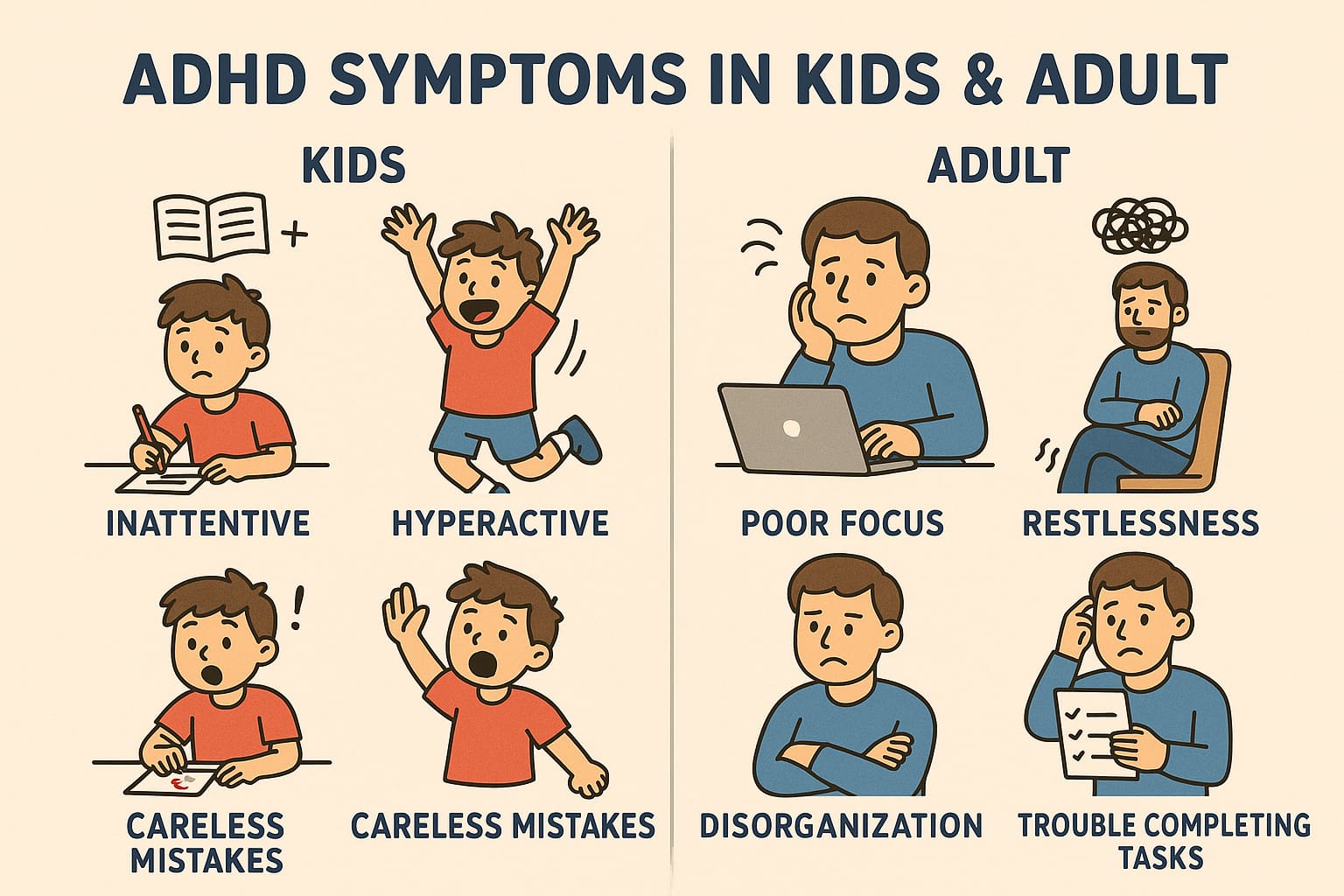Online ADHD assessment offers a quick and accessible way for individuals to gauge whether they may have symptoms of ADHD. These assessments are often free, confidential, and provide instant results based on behavior patterns related to attention, hyperactivity, and impulsivity. They serve as an initial step to understanding if professional evaluation and treatment might be needed.
Many online tools use scientifically supported questionnaires, such as the World Health Organization’s Adult Self-Report Scale, to provide reliable self-screening for both adults and children. While these assessments do not replace a formal diagnosis, they help identify potential signs and guide users toward seeking professional care.
The convenience of taking these tests from home can reduce wait times for clinical appointments and allow quicker access to strategies or treatment plans. This growing approach supports early awareness and better management of ADHD symptoms through evidence-based methods.
Understanding Online ADHD Assessment
Online ADHD assessments provide a structured way to evaluate symptoms related to attention, hyperactivity, and impulsivity. They consider lifestyle, co-occurring conditions, and behavioral patterns to help determine the likelihood of ADHD. These assessments differ significantly from traditional, in-person methods in process and accessibility.
What Is an Online ADHD Assessment
An online ADHD assessment is a digital evaluation designed to gather detailed information about a person’s behavior and symptoms related to ADHD. It often includes standardized questionnaires that reflect criteria from diagnostic manuals such as the DSM-5 or the WHO ASRS.
The process involves answering questions about attention span, impulsivity, organization, and other relevant traits. Some platforms incorporate input from family or educators, especially for children, to provide a broader perspective. The goal is to identify patterns consistent with ADHD and related conditions like anxiety or depression.
Benefits of Online ADHD Assessment
Online assessments offer easier access by eliminating travel and scheduling challenges. They can be completed from home, making the process more convenient for individuals with busy or inflexible schedules.
Many services provide rapid results, often within days, which accelerates the path to diagnosis and treatment planning. The assessments can be more affordable compared to clinic visits. Confidentiality and privacy are commonly maintained through secure platforms.
Additionally, some assessments use AI to personalize reports, helping users understand their symptoms better. This method also facilitates early screening and monitoring without immediate clinical intervention.
Differences Between Online and In-Person Assessments
Online assessments rely heavily on self-reported data, which may be subjective and affected by personal bias. In contrast, in-person evaluations involve direct observation and clinical interviews conducted by trained professionals who can probe deeper into responses.
In-person assessments typically include neuropsychological testing, behavioral observation, and structured interviews, providing a comprehensive picture that online tools rarely match. However, online assessments can serve as an initial screening step before formal evaluation.
While online tools are convenient and accessible, they may not replace the diagnostic accuracy or personalized insights gained from face-to-face consultations. Clinical follow-up is recommended after an online assessment to confirm diagnosis and develop tailored treatment plans.
Choosing the Right Online ADHD Assessment
Selecting an online ADHD assessment requires attention to specific features, verification of the provider’s credibility, and careful consideration of privacy standards. These factors collectively influence the quality, reliability, and security of the evaluation process.
Key Features to Look For
A comprehensive ADHD assessment must include a full clinical interview and standardized behavior checklists to accurately identify symptoms. Input from family members or teachers may be necessary to provide additional context.
The assessment should also incorporate rule-out procedures to exclude other conditions with similar symptoms. Some platforms enhance their evaluations using AI-driven personalization to tailor feedback based on user responses.
Accessibility and affordability are important but should not compromise the thoroughness of the assessment. Evidence-based tools offer better reliability than simple self-report quizzes.
How to Evaluate Credibility
Checking for credentials is critical when choosing an online assessment platform. The service should be operated or overseen by licensed mental health professionals specializing in ADHD.
Reviews, referrals, and clear explanations of the methods used also help gauge reliability. Legitimate assessments rely on widely accepted diagnostic criteria such as the DSM-5.
Avoid platforms that rely solely on quick quizzes or lack clinical oversight. Transparent information about the assessment structure and follow-up options indicate a higher standard of care.
Privacy and Data Security Considerations
Confidentiality is essential in any online health service. Providers must clearly state how they collect, store, and use personal data.
Look for platforms that comply with relevant legal standards such as HIPAA in the U.S. or GDPR in Europe. Secure data encryption methods and strict access controls protect sensitive health information.
Patients should be informed about their rights regarding data sharing and have the option to withdraw consent. Privacy policies should be easily accessible and written in plain language.



